Arab media’s coverage of Sayyed Nasrallah’s assassination reveals overt pro-Israel bias
By Maryam Qarehgozlou
Following the assassination of Hezbollah leader Sayyed Hassan Nasrallah by the Israeli regime on Friday, several English-language Arab media outlets jumped on the bandwagon to amplify Zionist narratives.
The media coverage of the attack widely described as an act of terrorism wasn’t particularly objective in Arab media outlets as they deliberately refrained from stating facts and resorted to obfuscation.
These media outlets, given their regional context and cultural affiliations, were expected to demonstrate greater support for the Lebanese resistance movement amid the Israeli regime’s incessant attacks that have killed hundreds and injured thousands in recent weeks and months.
However, our analysis of these media outlets and their coverage of the Hezbollah leader’s assassination showed that they amplified the narratives peddled by Israeli and Western media outlets.
Many outlets termed the terrorist crime a “victory for Israel,” thereby failing to comprehend the terrorist nature of the attack and the moral failure of the Tel Aviv regime and its Western backers.
Some of the terms and phrases used by these media outlets revealed their pro-Israel stance or glorification of the terrorist crime that also killed dozens of Lebanese civilians, including children.
For instance, they described the deadly strike as a “meticulously planned” attack that “obliterated” Sayyed Nasrallah’s bunker using US-supplied “bunker-buster munitions.”
By employing such language, they gave attention to Israel’s much-hyped military capabilities and the supposed strategic importance of “eliminating” the leader of the Lebanese resistance movement who has been spearheading the fight against the Israeli occupation for the liberation of al-Quds.
Southern suburb of Beirut in the aftermath of Israeli airstrikes. pic.twitter.com/XTdsKx0AfQ
— Palestine Highlights (@PalHighlight) September 30, 2024
The same bombs used to assassinate Nasrallah have for months been used to destroy hospitals and schools in the besieged Gaza Strip, where the death toll has now crossed the 41,600 mark.
In their coverage of the aftermath of the assassination, some Arab media outlets focused on Israeli Prime Minister Benjamin Netanyahu’s bellicose statements, portraying the killing as a “great military and intelligence victory for Israel,” making a terrorist crime look like a great military feat.
The National, a state-owned English-language daily newspaper published from Abu Dhabi, in a story titled “Hezbollah confirms death of leader Hassan Nasrallah in an Israeli strike on Beirut,” in a deliberate attempt to downplay the significance of the cause he represented, avoided using the terms like “martyrdom” and “assassination” and instead used “killed” and “death.”
By using such misleading terms, The National and other Arab media outlets have deliberately sought to avoid acknowledging Sayyed Nasrallah’s status as a martyr on the path to al-Quds.
According to media analysts, the term “martyrdom” carries connotations of sacrifice and devotion to a higher cause, and is often used within the context of resistance movements to honor those who offer supreme sacrifices for bigger and divine causes.
Similarly, the term “assassination” implies a targeted and deliberate act of violence against a specific individual, often with political motivations, and more general terms like “death” or “killing” can be seen as an attempt to downplay the political significance of Nasrallah’s assassination.
“Such choices of terminology reflect the biases and agendas of these media outlets, seeking to minimize the impact and significance of Nasrallah’s assassination for the Axis of Resistance,” said Kaveh Moradi, a Tehran-based media analyst.
Demonstrations are taking place in Tehran against Israel's atrocities, including the recent assassination of Hezbollah Secretary-General Sayyed Hassan Nasrallah, as well as the ongoing genocidal war in Palestine and Lebanon. pic.twitter.com/hZWDR35yGO
— Palestine Highlights (@PalHighlight) September 30, 2024
The National also depicted Nasrallah’s assassination as a “significant Israeli blow” to Hezbollah to align with the Israeli narrative and soft-pedaling the resilience and capabilities of the Axis of Resistance.
The Emirati news outlet in another report referred to Netanyahu’s remarks after the assassination of Nasrallah as an effort to shape public opinion in favor of Israel and present the assassination as a “necessary and decisive action” against a “dangerous and violent enemy.”
Khaleej Times, another Emirati daily English language newspaper published from Dubai, wired reports by Reuters and AFP, which were marked by their usual biases in favor of the Israeli regime, selective coverage and not reflecting resistance groups’ perspectives or facts about the ongoing massacres.
“Such reports are usually influenced by Western political interests and serve to delegitimize resistance groups’ struggles and downplay the root causes of their fights,” said Moradi.
Gulf News, a daily English language newspaper published from Dubai, like other media outlets, decided to incorporate AFP’s reporting on the assassination of Nasrallah by the Israeli regime.
The UAE stayed completely quiet on Nasrallah’s assassination. It normalized ties with Israel in 2020.
Al-Ahram, an Egyptian daily newspaper, followed suit in its reporting on the assassination of Nasrallah.
According to a statement by the Egyptian presidency, President Abdel Fattah al-Sisi spoke to Lebanese Prime Minister Najib Mikati by phone and said Cairo rejected any violation of Lebanon’s sovereignty - without mentioning Nasrallah.
The New Arab, also known as Al-Araby Al-Jadeed, a London-based pan-Arab news outlet owned by Qatar, also avoided using “martyrdom” and “assassination” in its reports on the assassination of Nasrallah, toeing the line of Western and Israeli media outlets.
Israel’s assassination list typical of killer regime https://t.co/uZNaPUK3W5
— Press TV 🔻 (@PressTV) September 29, 2024
In a report titled “Hezbollah chief Hassan Nasrallah confirmed killed in Israeli strike on Beirut,” The New Arab quoted West Asia expert James Dorsey describing Friday’s attack as “very sophisticated” and proof of “how deeply Israel has penetrated Hezbollah.”
The statement, endorsing Israel’s aggression against the Axis of Resistance and civilians, was a failed attempt to demoralize Hezbollah’s supporters and allies and aims to suggest that Israel has the upper hand in the conflict and possesses superior capabilities compared to Hezbollah, say experts.
The New Arab in its reports adopted a narrative in favor of Israel that portrayed Nasrallah’s assassination as a “major victory” for the occupying regime and a destabilizing event for Lebanon and the broader West Asia, without acknowledging the terrorist nature of the crime and continued crimes against ordinary Lebanese civilians in southern Lebanon and Beirut in recent weeks.
Qatar also remained silent on the assassination of Nasrallah.
The Arab News, an English-language daily newspaper published in Saudi Arabia, also wired reports by Western media like the Associated Press (AP), Reuters and AFP, all unquestionably framing the assassination as a “successful Israeli operation,” highlighting Hezbollah’s so-called “vulnerabilities.”
Al Arabiya, a Riyadh-based Saudi state-owned international Arabic news television channel, also wired a story by Reuters which confirmed Nasrallah’s assassination.
Saudi Arabia in a statement issued late on Sunday said that it is following the developments in Lebanon with “grave concern,” and urged the preservation of the sovereignty and regional security of Lebanon, without any mention of Nasrallah’s assassination.
In a region where allegiances and support for resistance movements like Hezbollah are deeply rooted in the collective consciousness, the biased coverage of Nasrallah’s assassination by English-language Arab media has raised questions about their journalistic integrity and the values they represent.
Iran calls on IAEA to condemn fresh US-Israeli attacks on nuclear site
Murder of innocence: Israeli-US aggression on southern Iran school killed 165 children
Israeli PM’s fate unclear after ‘surprise’ missile attack on his office: IRGC
Iran Armed Forces shoot down US F-15 fighter jet near Kuwait border
IRGC, Army launch fresh waves of missile strikes against Israeli, US targets
Red Crescent Society: 555 people killed across Iran in US-Israeli onslaughts
Operational concerns delayed US-Israeli aggression against Iran for a week: Report
Iran slams Israeli attacks on Lebanon, warn UNSC’s inaction to embolden regime



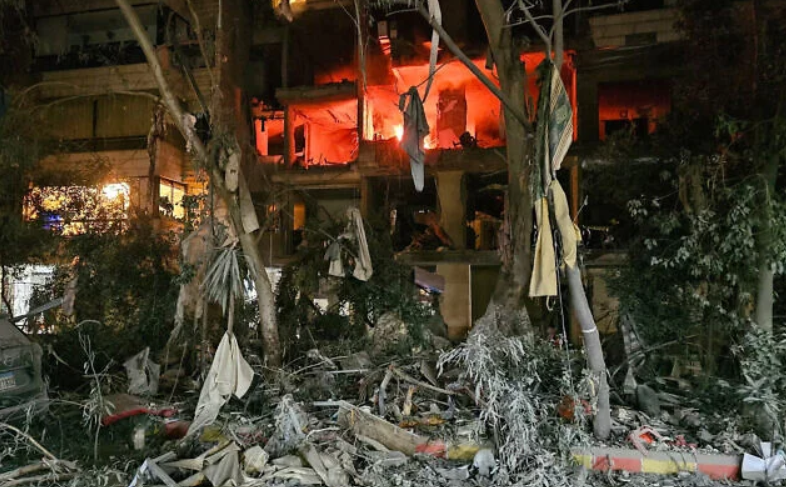
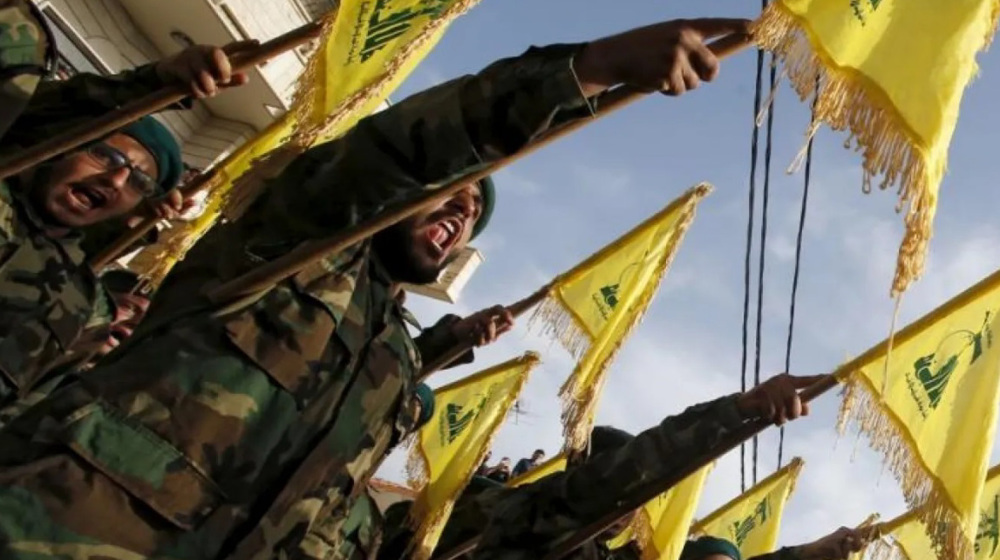
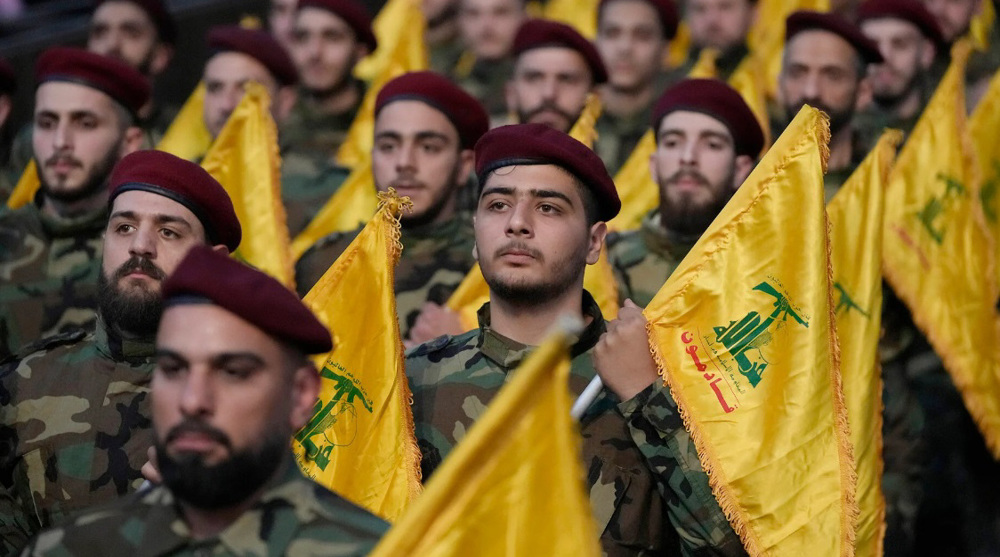



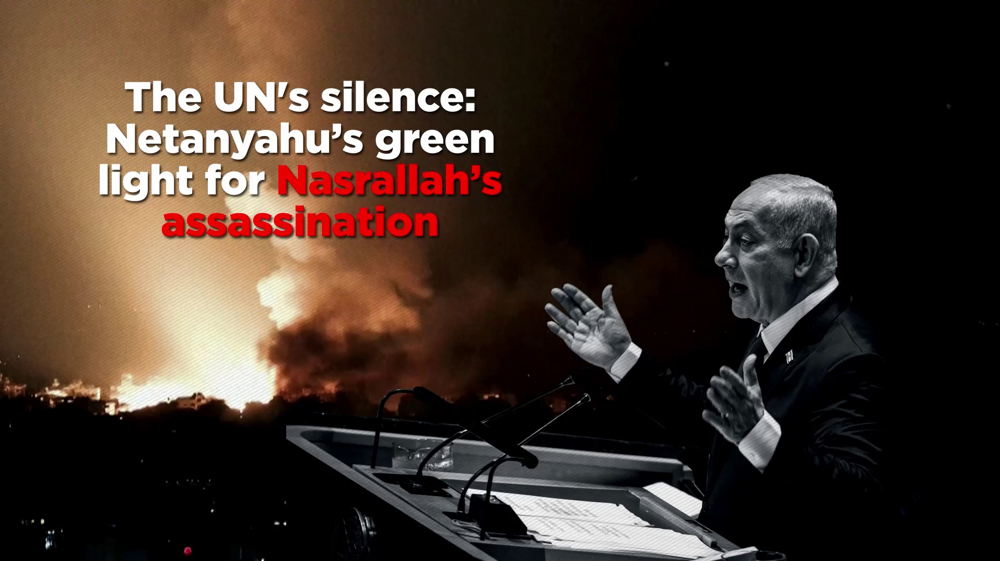



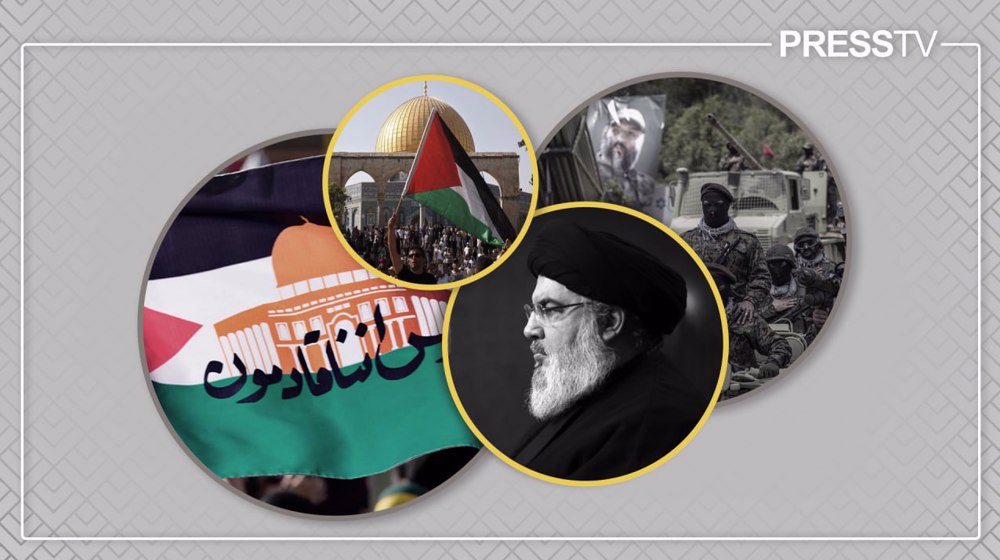

 This makes it easy to access the Press TV website
This makes it easy to access the Press TV website